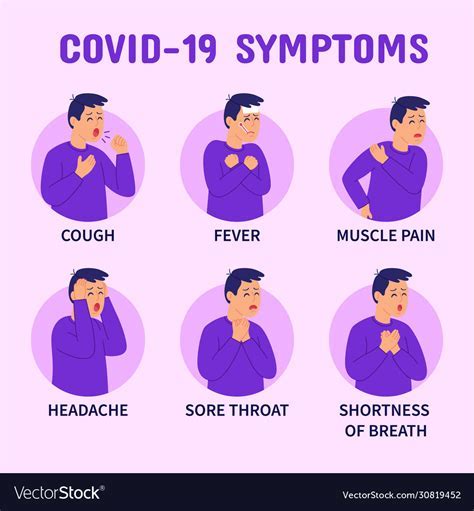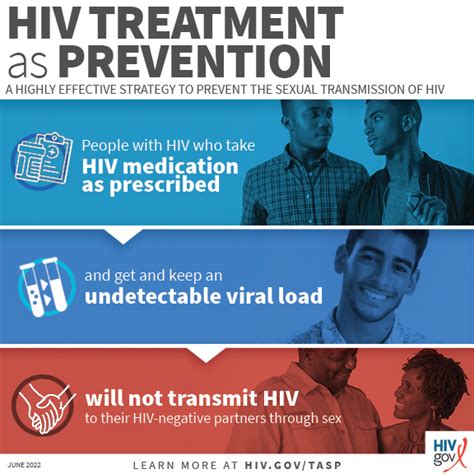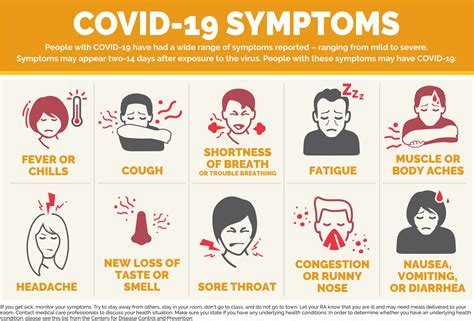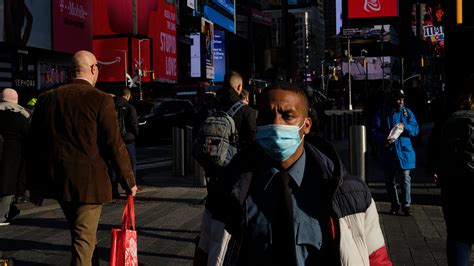The COVID-19 pandemic has brought about a significant shift in the way we live, work, and interact with one another. As the virus continues to evolve, it's essential to stay informed about the symptoms, transmission, and prevention methods. COVID-19 symptoms can range from mild to severe, and it's crucial to recognize them early on to seek medical attention and prevent further spread. In this article, we'll delve into the 7 COVID symptoms, their effects on the body, and what you can do to protect yourself and your loved ones.
The importance of understanding COVID symptoms cannot be overstated. By recognizing the signs and symptoms, individuals can take prompt action, reducing the risk of transmission and seeking medical attention if necessary. Moreover, being aware of the symptoms can help alleviate anxiety and uncertainty, allowing people to make informed decisions about their health. As we navigate this new reality, it's vital to stay informed, adapt to changing circumstances, and prioritize our well-being.
As the COVID-19 pandemic continues to affect communities worldwide, it's essential to stay vigilant and proactive. By understanding the symptoms, risks, and prevention methods, we can work together to mitigate the spread of the virus. In the following sections, we'll explore the 7 COVID symptoms, their effects on the body, and provide practical advice on how to manage and prevent the spread of the virus.
Introduction to COVID Symptoms
The COVID-19 virus can cause a wide range of symptoms, from mild to severe. The 7 COVID symptoms include fever, cough, shortness of breath, fatigue, headache, sore throat, and diarrhea. These symptoms can appear anywhere from 2-14 days after exposure to the virus and can vary in severity and duration. It's essential to monitor your health closely and seek medical attention if you experience any of these symptoms, especially if you've been in close contact with someone who has tested positive for COVID-19.
Understanding the 7 COVID Symptoms
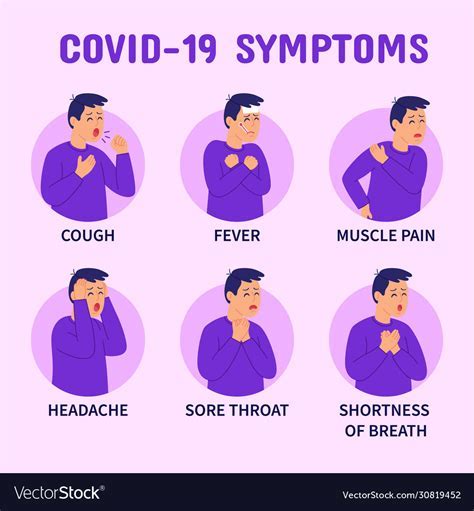
Let's take a closer look at each of the 7 COVID symptoms:
* Fever: A high temperature, usually above 100.4°F (38°C), can be a sign of COVID-19.
* Cough: A dry or wet cough can be a symptom of COVID-19, and it's essential to cover your mouth and nose when coughing to prevent the spread of the virus.
* Shortness of breath: Difficulty breathing or feeling winded even when sitting still or engaging in light physical activity can be a sign of COVID-19.
* Fatigue: Feeling extremely tired or weak can be a symptom of COVID-19, making it challenging to perform daily activities.
* Headache: A severe headache can be a sign of COVID-19, and it's essential to seek medical attention if you experience a sudden or severe headache.
* Sore throat: A sore or scratchy throat can be a symptom of COVID-19, and it's essential to stay hydrated and rest your voice to help alleviate the discomfort.
* Diarrhea: Diarrhea or nausea can be a symptom of COVID-19, and it's essential to stay hydrated and seek medical attention if you experience severe or persistent gastrointestinal symptoms.
Transmission and Prevention
COVID-19 is primarily spread through respiratory droplets, contact with contaminated surfaces, and close contact with an infected person. To prevent the spread of the virus, it's essential to:
* Practice social distancing: Maintain a distance of at least 6 feet from others, especially in crowded areas or public transportation.
* Wear a mask: Wear a mask that covers your nose and mouth when in public or around others, especially if you're experiencing symptoms.
* Wash your hands: Wash your hands frequently with soap and water for at least 20 seconds, especially after using the bathroom, before eating, and after blowing your nose, coughing or sneezing.
* Avoid close contact: Avoid close contact with anyone who is sick or has tested positive for COVID-19.
* Stay home: Stay home if you're experiencing symptoms or have been in close contact with someone who has tested positive for COVID-19.
Managing COVID Symptoms
If you're experiencing COVID symptoms, it's essential to manage them effectively to reduce the risk of transmission and alleviate discomfort. Here are some tips:
* Stay hydrated: Drink plenty of fluids, such as water, clear broth, or electrolyte-rich beverages like sports drinks.
* Rest: Get plenty of rest to help your body recover from the infection.
* Use a humidifier: Use a humidifier to add moisture to the air, which can help relieve congestion and cough.
* Practice good hygiene: Cover your mouth and nose when coughing or sneezing, and wash your hands frequently.
* Seek medical attention: Seek medical attention if you experience severe symptoms, such as difficulty breathing, chest pain, or severe headache.
Coping with COVID-19
Living with COVID-19 can be challenging, both physically and emotionally. It's essential to prioritize your mental health and well-being during this time. Here are some tips:
* Stay connected: Stay connected with friends and family through phone calls, video calls, or messaging apps.
* Practice self-care: Engage in activities that bring you joy and relaxation, such as reading, meditation, or yoga.
* Seek support: Seek support from mental health professionals or support groups if you're experiencing anxiety, depression, or other emotional challenges.
* Stay informed: Stay informed about the latest developments and guidelines, but avoid excessive exposure to news and social media.
Conclusion and Next Steps
As we navigate the COVID-19 pandemic, it's essential to stay informed, proactive, and compassionate. By understanding the 7 COVID symptoms, transmission, and prevention methods, we can work together to mitigate the spread of the virus. Remember to prioritize your health and well-being, seek medical attention if you experience severe symptoms, and stay connected with loved ones. Let's work together to build a stronger, more resilient community.
We invite you to share your thoughts, experiences, and questions in the comments below. How have you been coping with COVID-19? What steps have you taken to protect yourself and your loved ones? Let's start a conversation and support one another during this challenging time.
What are the 7 COVID symptoms?
+
The 7 COVID symptoms include fever, cough, shortness of breath, fatigue, headache, sore throat, and diarrhea.
How is COVID-19 transmitted?
+
COVID-19 is primarily spread through respiratory droplets, contact with contaminated surfaces, and close contact with an infected person.
What can I do to prevent the spread of COVID-19?
+
To prevent the spread of COVID-19, practice social distancing, wear a mask, wash your hands frequently, avoid close contact with anyone who is sick, and stay home if you're experiencing symptoms.
